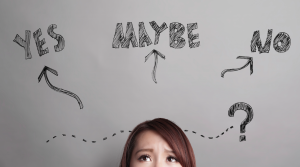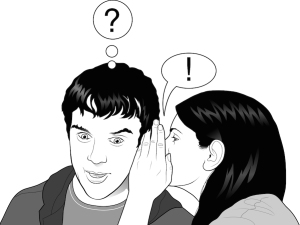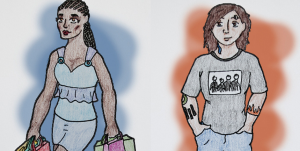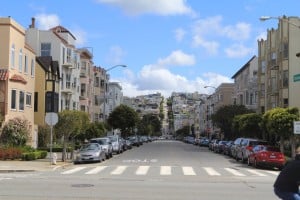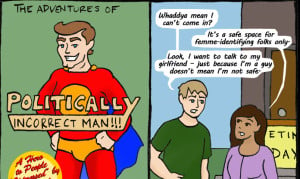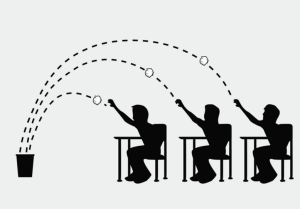If you’ve ever heard someone say, but what about “black-on-black crime?” we’ve got you covered.
Scrolling through your Facebook feed, you’ll probably see articles and arguments about Black Lives Matter. A lot of people are mad or just confused about this movement, so here are responses to four questions you might hear when talking about Black Lives Matter.
“Oh so you care about black lives? Then why aren’t you talking about black-on-black crime?”
First off, this assumes that the black community isn’t worried about gun violence, which isn’t true. For example, Cease Fire in Chicago is an organization that actually intervenes in local street and gang fights. There’s even a documentary about them called The Interrupters.
#BlackLivesMatter isn’t just about the loss of life, which is always terrible; it’s about the lack of consequences when black lives are taken at the hands of the police. When a civilian has committed a violent crime, they’re generally arrested, tried, and convicted. Conversely, there’s a lot of evidence that it’s very rare to secure an indictment against a police officer for excessive force, and an indictment is just a trial. It’s not even a conviction.
Also, “black-on-black crime” isn’t a thing. 84% of white murder victims were killed by another white person, but we don’t call it “white-on-white crime.” That’s because our communities are still very segregated, so if you have the misfortune of being the victim of a crime, the perpetrator will most likely look like you.
So why do people always bring up “black-on-black crime”? Because it’s a diversion. They’re trying to prove black citizens don’t have the right to be outraged about police violence because their communities have a crime problem. But the truth is, black people are not more violent or more likely to commit crimes than anyone else.
The reality is, because of a history of institutional racism, black communities have higher poverty rates, suffer from poorly funded schools, and are more likely to be targeted by police.
“So are you saying blue lives don’t matter?”
Of course the lives of cops matter. That’s why if you kill a police officer, you are rightly arrested and prosecuted. But saying “blue lives matter” effectively lumps a profession into the same category as a marginalized group of people. Becoming a police officer is an occupation, it’s a choice, it’s not something you’re born into. And most importantly, advocating for citizens is not anti-cop. The job of police officers is to protect and serve all communities. If that’s not happening, we need to reassess and find a solution.
“So you’re saying only black lives matter? That’s racist.”
We’ve talked about this before, but this movement is not saying black lives matter more than anyone else’s. It’s saying, black lives should matter, but the way that our justice system, our media, and our police have been operating suggest that they do not. It’s totally okay for a movement to focus on issues specific to one marginalized groups.
Gay bars aren’t unfair to straight people. A breast-cancer walk isn’t unfair to other forms of cancer. And “save the rain forest” isn’t saying you hate all other trees.
To quote one law professor’s letter, “The subtext of #BlackLivesMatter is, because of the brutalizing and killing of black people at the hands of police, and the indifference of society in general and the criminal justice system in particular, it is important that we say: #BlackLivesMatter.”
“But what about the white victims of police violence, there’s way more of them?”
Yes, there are more white people killed by police officers than black people, but when you look proportionately within the populations, black Americans are 2.5 times as likely as white Americans to be shot and killed by police officers.
Black men make up just 6% of the nation’s population, but of all the unarmed people shot and killed by police in 2015, 40% of them were black men. Those numbers are tragic.
If an unarmed citizen is killed by the police, or an armed citizen is killed under suspicious circumstances, people should be upset no matter what the victim’s race. This isn’t a competition.
Sadly, police violence is a problem in many communities, but bringing up other victims to discredit the #BlackLivesMatter movement is pretty disingenuous.
If you really believe that police violence is a problem, you should support #BlackLivesMatter as well as other organizations fighting for victims and their families.
I know these conversations are hard, but they’re necessary if we want to move forward. Thanks for watching, and we’ll see you next time right here on Decoded.







